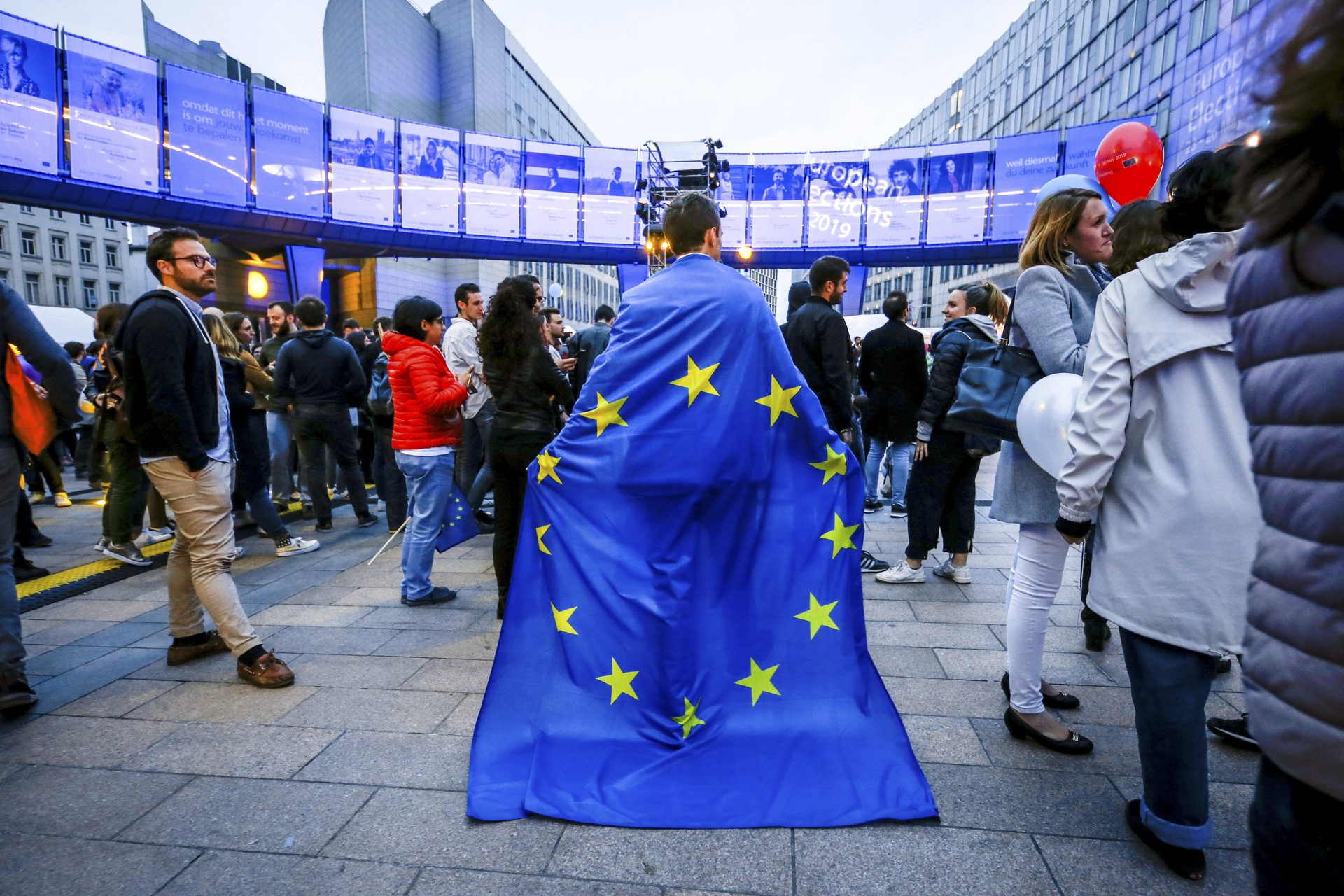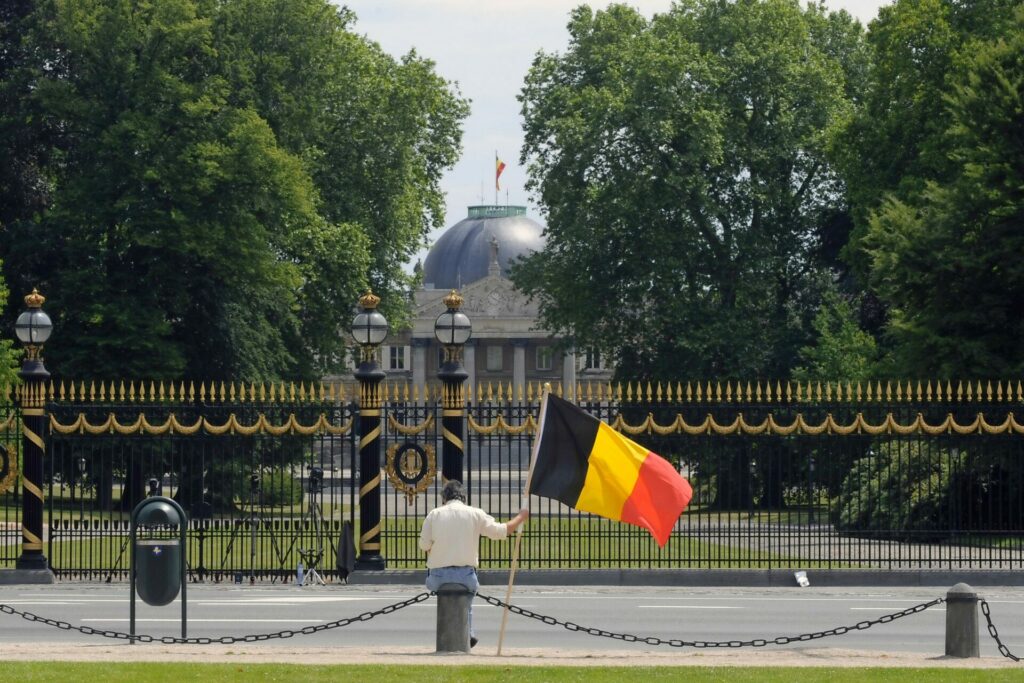Belgians are still optimistic about their EU membership and future in the international alliance, with 72% of Belgians stating that the European Union does impact their daily life.
The European Parliament’s Autumn 2023 Eurobarometer was carried out between 25 September and 19 October 2023 in all 27 EU Member States.
The poll comes six months ahead of the European and Belgian elections on 9 June 2024. While it excluded any data on the fight against corruption, the findings paint a largely positive picture of the EU and Belgium's position at the heart of it.
Indeed, more Belgians feel that the EU has a positive impact than the European average (70%). Among the negative responses, a smaller percentage of Belgians felt that the EU did not impact their life (27%), compared to the rest of the EU (29%). In terms of whether Belgium has benefitted from the membership, a staggering 79% responded positively.
However, when it came to whether the EU has a positive or negative image, the result was less resounding: 41% positive compared to 38% neutral and 21% negative. This possibly reflects some of the negative coverage which has gripped Brussels recently, such as the Qatargate corruption scandal or the divisions on the Israel-Hamas war.
This findings however, do not cast doubt on Belgium's EU membership. According to the poll, 70% of Belgians believe EU membership is a "good thing" – up by 2 percentage points from the last poll taken in March 2023. Eurosceptic Belgians polled at 8%, while 22% were neutral. These figures exceed those of the EU average, where 61% feel positively about membership, compared to 28% who feel neutral, and 10% negatively.
No exiting the EU
Membership of the EU is not a hotly debated topic in Belgium, which is also reflected in the absence of a party which advocates for exiting the EU. Left-wing Belgian Workers' Party (PTB-PVDA) has opposed the European Union on many issues, notably austerity and social policy, but do not implicitly advocate to leave.

European Elections 2019 - Election night. Credit: European Parliamen
In Flanders, right-wing nationalists N-VA are part of the European Conservatives & Reformists (ECR), a soft eurosceptic political group which includes other nationalist forces, but are marginally more measured than the far-right Identity and Democracy (ID) group.
Vlaams Belang, who sit in the far-right group, are the biggest critics of the EU in Belgium, particularly on migration, but they also do not expressly advocate for Bexit.
Defending 'EU values'
In terms of values for the European Union to defend as a priority, Belgians chose democracy (32%) and protection of human rights in the EU and worldwide (30%), which came in above the EU average (27%), as the most important.
The latter figure could be interpreted as another reflection of the Belgian Government’s strong stance in the defence of human rights in both Gaza and Nagorno-Karabakh this year, as well as continued commitment to Ukraine.
As they did in March, 40% of Belgians have placed the fight against poverty and social exclusion as the number one priority to be addressed by the European Parliament.
Action against climate change dropped two percentage points (35%) since March, while public health has jumped up into second place with 36% (+7). In third place, Belgians have placed asylum and migration, which has shot up to 26% (+6), well above the EU average of 18%.

European Parliament President Roberta Metsola and Prime Minister Alexander De Croo interact during a meeting of the Belgian Presidency of the Council of the European Union. Credit: Belga / Jonas Roosens
Prime Minister Alexander De Croo indicated in a press conference last week that the Belgian Presidency will prioritise finalising legislation on asylum and migration, as well as the economic and social aspects of the European Green Deal.
The largest divergence with the EU is on the defence and security (including the protection of external borders), where 15% of Belgians see this as a priority compared to 24% in the EU. Europeans also polled considerably lower on prioritising migration and asylum (18%).
"Throughout these past five years, we have listened. And the European Parliament has delivered. We are fighting against poverty, social exclusion and climate change, to create jobs and to defend EU values, such as democracy, human rights and the freedom of speech," President Roberta Metsola said in a statement.
Election fever
With the elections around the corner in 2024, 72% of Belgians expressed an interest in voting in the European elections, which is compulsory for people over the age of 18.
For the first time, teenagers aged 16 and over are able to vote in Belgium, but it is not compulsory. Between the ages of 15-24, 60% said they are likely to vote, the lowest. The highest were the 40-54 age group (79%).
"Democracy can never be taken for granted. We must protect and preserve it, by casting our vote. Every vote in the upcoming European elections matters," President Metsola concluded.

